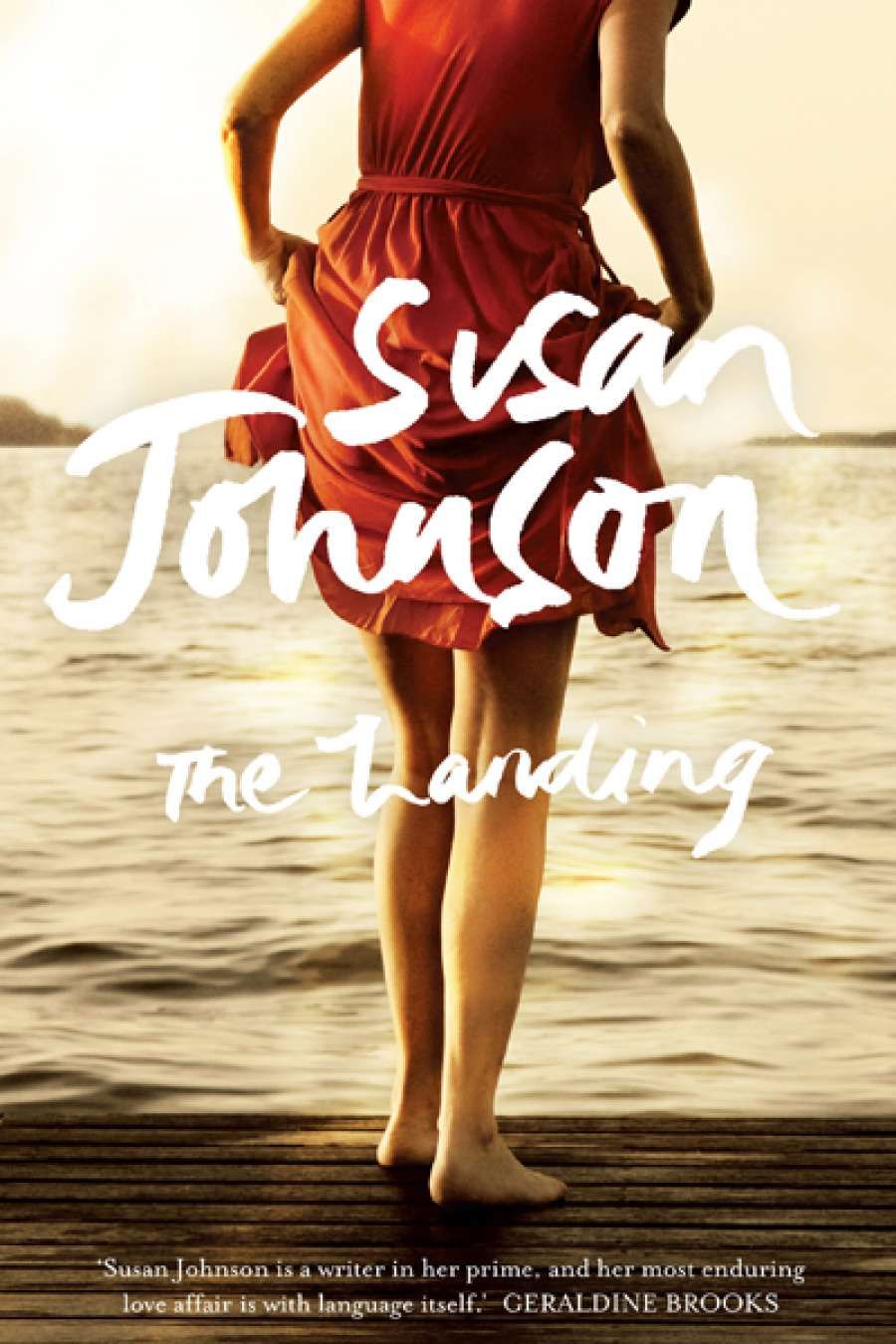
- Free Article: No
- Contents Category: Fiction
- Custom Article Title: Anthony Lynch reviews 'The Landing' by Susan Johnson
- Book 1 Title: The Landing
- Book 1 Biblio: Allen & Unwin, $29.99 pb, 278 pp, 9781760113933
Biblical names feature prominently, as do ancient Greek ones. The local pub with a dance floor is called The Orpheus; Scarlett’s two boys are Hippolyte and Ajax. Indeed, Europe, and France in particular, looms in this Queensland setting as a site of sophistication and allure, but also of disappointment, of lost illusions.
The Landing, population two hundred and twenty, is ‘a slender tip of a finger of God’s earth’ extending over a lake and a ‘peaceful refuge in the wake of relentless life’. It is home to hippies, retirees, and social outsiders, and a landing place for more affluent Brisbanites who, like Jonathan, frequent the quiet community in their downtime.
The Landing – book and place – offers the kind of large cast of characters in a confined space we might associate with Dylan Thomas or Agatha Christie. Most of the action swirls around the two romantically abandoned middle-aged characters, Jonathan and Penny, but others are sufficient in number to warrant jotting down a list as a reminder of their relationships. Two ‘gatherings’ bookend the narrative, and the first in particular, a barbecue at Jonathan’s, brings with it a sense of expectation not unlike the calm before the tsunami of Christos Tsiolkas’s The Slap, albeit with not quite the same sense of foreboding.
Johnson touches on contemporary sensitivities over matters such as the place of Muslims in contemporary Australia, and also, in her short history of place, the violent dispossession of Aboriginal people under colonisation. These are not, however, central to the novel. Johnson is not preoccupied with the consequences of one action, or one arena of moral or political contestation. Her field of enquiry is the withdrawal of love, the reparations to be paid.
‘The Landing – book and place – offers the kind of large cast of characters in a confined space we might associate with Dylan Thomas or Agatha Christie’
The novel is written in the third person, with the focus shifting from one character to another. Rhetorical questions abound. Early on, some of these seem a bit naff: ‘Might he – after all – survive the failure of love?’ and ‘I am still alive, he thought. What am I to do now?’ This is Jonathan, stunned fish thrown on shore, daffily asking himself how he got there. But the questions, like the characters, grow in nuance and poignancy, and Johnson provides tender, and sometimes very funny, portraits of infidelity, longing, loss – and of the ways in which humans, in small lives and modest settings, deal with, if not overcome, calamity.
The Landing refers not just to a geographical space – though it is that, too, when Jonathan’s property, backing on to the lake, is threatened with invasion by a council walking path. It takes on an alternative literal sense when we learn that Marie’s husband Syd, during their courtship, had in an act of romantic devilry leapt from Victoria Bridge when she rejected his marriage proposal. He survived, landing on water and emerging to become Marie’s devoted husband until illness suddenly took his life many years later. Theirs is one of the few marriages ended not by infidelity and divorce, but death.
‘Her field of enquiry is the withdrawal of love, the reparations to be paid’
Metaphorically, landing also refers to how people land on their feet, or their faces, following leaps made by themselves or others. The one sure thing is that the leaping and landing will not be in the same place. And as tends to happen, the more we learn about characters and their circumstances, the leaps made, the more we empathise. The prime example is the demanding Marie, who remains overbearing but whose history of insecurity, triumph, and grief is revealed with delicacy and wit.
Johnson’s movement between characters, her shifts in place and time, are deft, her descriptions often devastating. Penny, an art teacher, finds the ‘vacant eyes of adolescents’ like ‘looking into the eyes of goats’. And, we get the marvellously deadpan ‘Rosemary was in marketing, whatever that was’ and ‘Homeless, at last!’
Johnson’s novel takes a predictable leap. But it makes an exquisite landing.


Comments powered by CComment